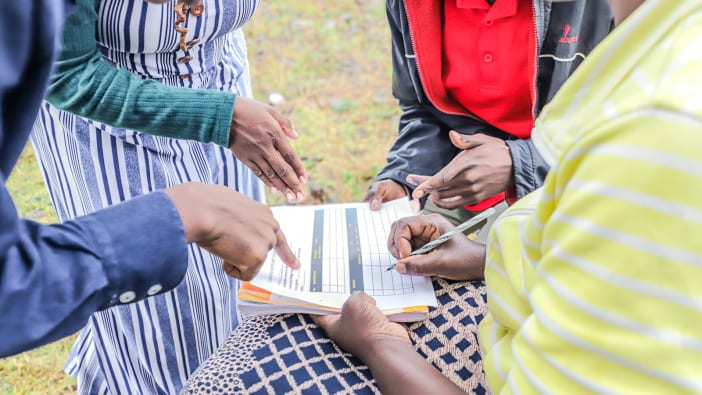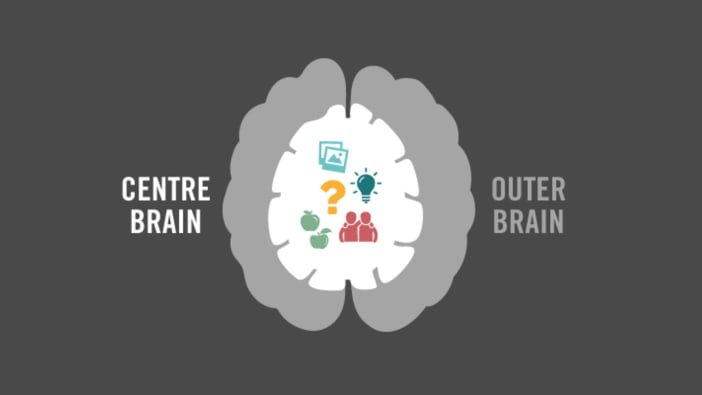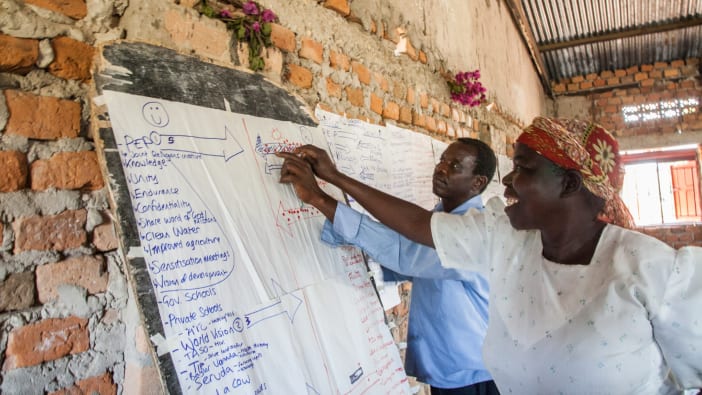by Simon Batchelor.
There has been a lot of discussion in academic circles about how adults learn. People working in development are becoming increasingly influenced by the writings of Brazilian adult educationalist, Paulo Freire. He suggested that education is never neutral. When a teacher teaches, it either leads to people conforming to society, or to liberation. He went on to say that people learn more by critically thinking through their own situation than by soaking up the knowledge of ‘experts’.
This can be applied to adult education, including literacy, by getting people to reflect on a problem and then take action. A cycle of reflection, action, reflection, action then begins (sometimes called praxis) which is said to be at the heart of learning.
Problem solving
The reason this type of learning works is because most people (poor and rich) only reflect and take action on issues which they feel strongly about and which are important to them now. They may actively seek information and knowledge if it will help solve a problem. They may then apply this knowledge by learning new skills. Even their attitude can be affected. Reflection which leads to action for the poor often leads to an awakening to their own situation so that they can transform the quality of their own lives, their environment, their community and the whole of society.
Many people have taken these ideas and applied them in different ways. Agencies are now applying Freire’s ideas to programmes and projects. Evangelicals are finding that people will learn more about the gospel of Christ in action/reflection cycles.
As more and more agencies begin to use action and reflection cycles, so the word participation is becoming more widely used. However, participation can mean many things to many people – ranging from reluctant attendance at community meetings listening to outsiders telling people their plans – to active involvement by the community in developing their own plans. Effective participation involves people setting their own ‘agendas’.
Aid from the experts
Some development agencies plan projects from the outside. They talk to experts and decide they can help the poor. For example, a hand-pump may be ordered for a village. The managers of the project decide where a hand-pump is needed, and install one using their own team. After some months, the hand-pump breaks down and the villagers do not repair it. Why? The reasons might include that they feel no ownership of the pump, no responsibility. They may not have been trained to manage and maintain it. Maybe the pump is in the wrong place and is a source of friction in the village anyway, so the people are pleased to see it broken.
1. The outside project
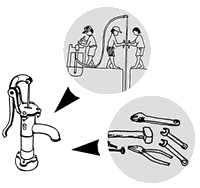
Consulting the villagers
Perhaps ten years ago, the idea of participation began to be widely accepted. With some influence from Freire and others like him, agencies started to say that participation was the key. They looked at the example of the broken handpump and said that what was needed was participation from the people so that they ‘owned’ the handpump. A new method for planning arose. The agency would send people to the village at the early stages of the planning. They would discuss the situation with the villagers, they would gather information from the people themselves, and they would plan the hand-pump with the people. Village committees would be created to discuss the position of the hand-pump, and a maintenance committee might be formed to maintain and repair it.
The result has been that hand-pump projects have been more successful. Projects with more participation from the people last longer and are more ‘sustainable’.
A local agenda
Although this type of participation is good, it should not be confused with the essence of Freire’s work. In our first example, the hand-pump was installed without discussion with the people in the planning phase. We can say that the hand-pump is the centre of the agency’s thinking, and that the agenda has been set by the external agency. In our second example, the hand-pump was installed with participation from the people. However, the hand-pump was still the centre of the agency’s thinking. It was still a hand-pump project. Participation in this case is like a tool to make the hand-pump work. The agenda is still set by the outside agency.
We have used the example of a handpump project because it is easy to understand. The same is true for any programme, including adult literacy. We can see programmes where planning is done by external agencies without participation from the people. New programmes can still be found where the agenda is set by outside agencies and participation is used as a tool to help people own the programme.
But for real understanding, learning and transformation, it is the people who must be at the centre. Their agenda must be set by themselves. We said above that people act on issues they feel strongly about, ie: their own agenda. A handpump may then just be one of many items on the agenda – or indeed it may not even be included – people themselves decide which are their priorities.
2. The project with participation
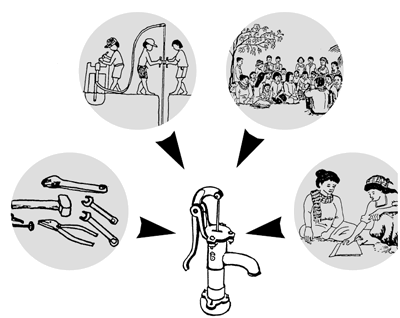
3. The village agenda
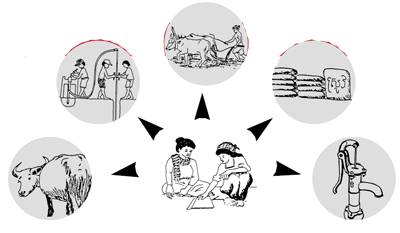
Discovery
People learn more by thinking through their situation than by soaking up the knowledge of ‘experts’. Discovery is a key word. An agency working in adult education should not be afraid to let the people explore their own agenda, at their own pace. The agency becomes the servant not the master. The agency’s agenda is to help the people’s journey of discovery.
Adult education then becomes a key to understanding problems and increasing choices. People can choose whether they want to try and obtain a hand-pump or improved seeds, or begin a literacy programme. Others should not make these decisions for them.
Simon Batchelor is an independent consultant working with a number of organisations to support sustainable initiatives. His address is: 152 Cumberland Road, Reading, RG1 3JY, UK.
Email: [email protected]







